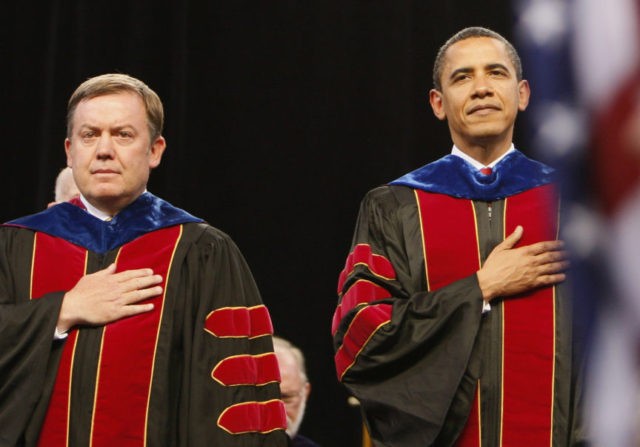Glenn Brown, the Chief Digital Officer of the Obama Foundation, has announced in a blog post that the Foundation is requesting input from ordinary citizens on what they thought the best model of “digital citizenship” is, and how they could push the concept forward.
According to DigitalCitizenship.net, there are nine elements that compose it:
Digital access (full electronic participation in society); digital commerce (electronic buying and selling of goods); digital communication (electronic exchange of information); digital literacy (process of teaching and learning about technology and the use of technology); digital etiquette (electronic standards of conduct or procedure); digital law (electronic responsibility for actions and deeds); digital rights and responsibilities (those freedoms extended to everyone in a digital world); digital health(physical and psychological well-being in a digital technology world; digital security (electronic precautions to guarantee safety).
For the Obama Foundation, it seems that there will be much more of an emphasis on learning from each other, the statement explained:
Going online was supposed to help us learn across differences, to face challenging new information, and to connect with people from wildly diverse geographic, cultural, and ideological backgrounds — in a way pre-digital life never could. Instead, “we now have a situation in which everybody’s listening to people who already agree with them,” President Obama said in a conversation with young people at the University of Chicago this April. Nearly everyone with a connected device knows how easy it is to “reinforc[e] their own realities, to the neglect of a common reality that allows us to have a healthy debate and then try to find common ground and actually move solutions forward,” in President Obama’s words.
This sentiment echoes Obama’s previous statements when it came to the idea of “safe spaces,” where some ideas were completely shut down for being “dangerous.” At a town hall event in Iowa in September 2015, the then-President said to the audience that he didn’t “agree that you, when you become students at colleges, have to be coddled and protected from different points of view,” a remark that produced a round of applause.
Digital engagement and digital citizenry were issues that Obama focused on during his time in office, so it is no surprise that his foundation would take this as a key issue to expand on after he left the White House.
Jack Hadfield is a student at the University of Warwick and a regular contributor to Breitbart Tech. You can like his page on Facebook and follow him on Twitter @ToryBastard_ or on Gab @JH.

COMMENTS
Please let us know if you're having issues with commenting.